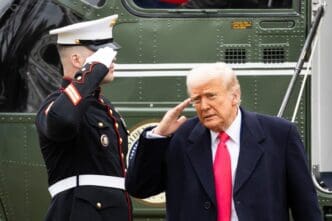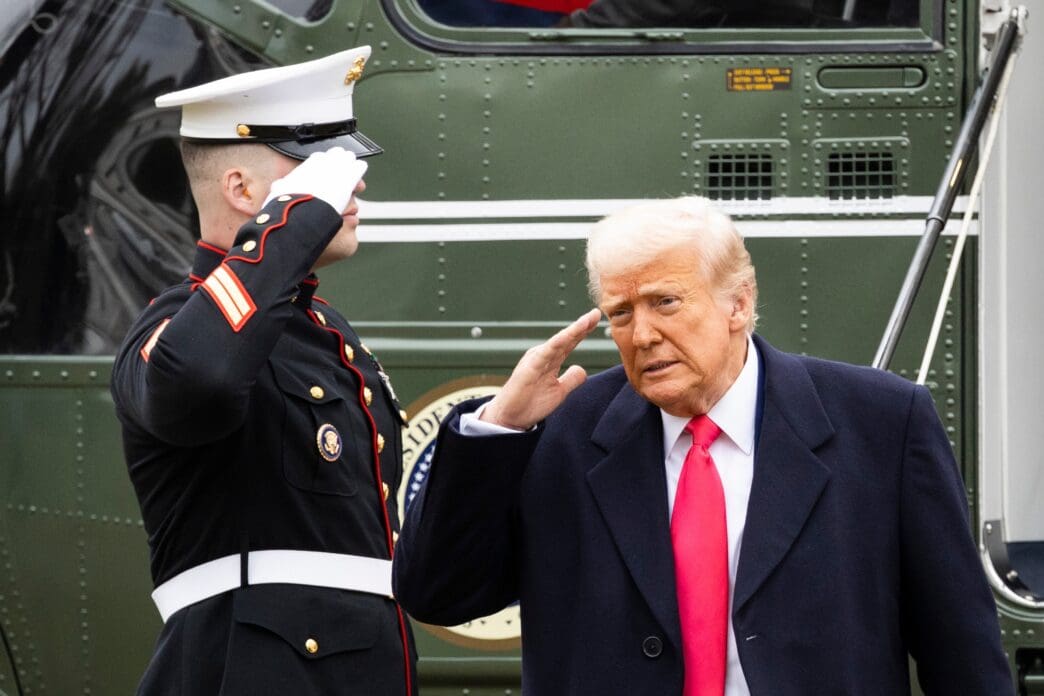Executive Summary
The Story So Far
Why This Matters
Who Thinks What?
President Donald Trump announced Saturday that he has ordered the Pentagon to prepare for possible military action in Nigeria, citing what he described as the “mass slaughter” of Christians. The declaration, which also included a threat to immediately stop all U.S. aid and assistance to Nigeria, follows Trump’s designation of the West African nation as a “Country of Particular Concern” for alleged religious freedom violations, a characterization Nigeria has repeatedly denied.
Trump’s Directives and Warnings
In a series of social media posts, Trump criticized Nigeria, stating the United States “may very well go into that now disgraced country, ‘guns-a-blazing,’ to completely wipe out the Islamic Terrorists who are committing these horrible atrocities.” He added that he was “hereby instructing our Department of War to prepare for possible action,” warning the Nigerian government to “move fast.” Trump asserted that any U.S. attack would be “fast, vicious, and sweet, just like the terrorist thugs attack our CHERISHED Christians!”
The President’s remarks came after he accused Nigeria on Friday of religious freedom violations, claiming “Christianity is facing an existential threat in Nigeria.” This led to the designation of Nigeria as a “Country of Particular Concern” under the International Religious Freedom Act, indicating the administration believes Nigeria has engaged in or tolerated “systematic, ongoing, (and) egregious violations of religious freedom.”
Nigeria’s Rejection of Claims
Nigerian President Bola Ahmed Tinubu responded to the designation on social media, stating that “the characterisation of Nigeria as religiously intolerant does not reflect our national reality.” Tinubu emphasized that his government is making “consistent and sincere efforts… to safeguard freedom of religion and beliefs for all Nigerians” and is actively “working with the United States government and the international community to deepen understanding and cooperation on protection of communities of all faiths.”
Bayo Onanuga, Tinubu’s press secretary, further addressed the U.S. claims, particularly in response to comments from U.S. Secretary of State Marco Rubio condemning the “slaughter of thousands of Christians.” Onanuga called the characterization “a gross exaggeration of the Nigerian situation,” clarifying that “Christians, Muslims, churches and mosques are attacked randomly.” He also stated that Nigeria’s primary need from the U.S. is “military support to fight these violent extremists in some states of our country, not designation as a nation of particular concern.”
Context of Nigerian Violence
Violence in Nigeria is driven by a complex array of factors, including religiously motivated incidents affecting both Christian and Muslim communities, as well as disputes between farmers and herders over resources, and various communal and ethnic tensions. While Christians have been targeted, local reports often indicate that a significant number of victims are Muslims residing in Nigeria’s predominantly Muslim northern regions. Spokespersons for the White House and Tinubu’s office did not immediately respond to requests for comment regarding the latest developments.
Outlook
The escalating rhetoric from President Trump, including the potential for military intervention and the cessation of aid, marks a significant diplomatic and security challenge for Nigeria. Abuja continues to deny the U.S. characterization of religious intolerance, instead seeking greater military cooperation to combat extremist groups affecting all faiths within its borders.








